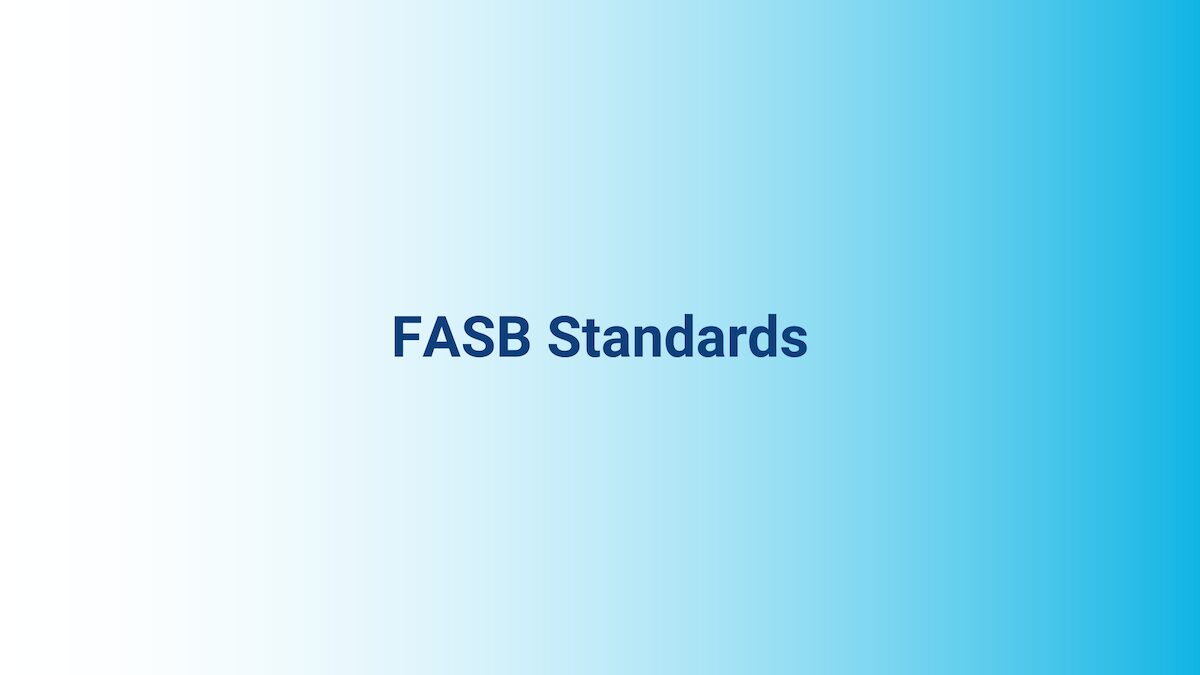The Financial Accounting Standards Board (FASB) is an independent, private-sector organization that establishes and improves accounting standards for entities that operate in the United States. Its mission is to ensure that financial reporting provides useful, clear, and consistent information to investors, donors, creditors, and other stakeholders.
Why FASB Standards Matter for Nonprofits
Unlike for-profit entities, nonprofit organizations have unique accounting and reporting needs. Their financial health is judged not by profit margins but by transparency, accountability, and alignment with mission-driven goals. FASB standards ensure that nonprofits maintain consistent financial reporting practices that foster trust and demonstrate responsible stewardship of resources.
Adhering to FASB guidelines allows nonprofits to:
- Enhance donor and grantor confidence
- Facilitate audits and external reviews
- Provide transparency for board members and stakeholders
- Maintain eligibility for public and private funding
Nonprofit Bookkeeping and Accounting Services from Charity Charge
Managing finances shouldn’t keep you from your mission. Work with licensed professionals to streamline processes, ensure compliance, and maintain transparency—so your team can focus on what matters most: making an impact.Learn more
Key FASB Standards Every Nonprofit Should Know
1. ASU 2016-14 – Presentation of Financial Statements of Not-for-Profit Entities
This standard simplifies and improves how nonprofits present financial information. It includes the following changes:
- Reduces net asset classifications from three to two: net assets with donor restrictions and net assets without donor restrictions.
- Improves disclosures about liquidity, financial performance, and cash flows.
- Requires nonprofits to report expenses by both their nature and function.
2. ASU 2018-08 – Clarifying the Scope and Accounting Guidance for Contributions Received and Contributions Made
This standard helps nonprofits determine whether a transaction is a contribution or an exchange transaction. It clarifies:
- How to distinguish between conditional and unconditional contributions
- Revenue recognition timing for grant and contribution income
3. ASU 2020-07 – Presentation and Disclosures by Not-for-Profit Entities for Contributed Nonfinancial Assets
This update affects how nonprofits disclose in-kind donations such as goods, services, and use of facilities. It requires greater transparency and helps prevent the overstatement of revenue.
FASB and GAAP: How They Work Together
FASB standards are the building blocks of GAAP. All nonprofit financial statements prepared according to GAAP must reflect the guidance issued by FASB. Compliance with these standards is often required by auditors, government agencies, and funders.
Key GAAP principles relevant to nonprofits include:
- Consistency: Use of uniform accounting methods over time
- Reliability: Accurate and verifiable financial reporting
- Understandability: Clear presentation of financial data
- Relevance: Information that is useful to decision-makers
Best Practices for FASB Compliance
Maintaining FASB compliance isn’t just about following rules—it’s about building credibility. Here are some best practices for nonprofits:
- Stay Informed: Monitor updates from FASB and subscribe to nonprofit accounting bulletins.
- Train Your Team: Ensure your finance staff is well-versed in the latest FASB standards and GAAP principles.
- Implement Fund Accounting: Use fund-based accounting software to properly segregate and report donor-restricted and unrestricted funds.
- Work with a CPA: Partner with a nonprofit accounting firm for audit readiness and compliance reviews.
- Document Policies: Maintain written financial policies that reflect adherence to FASB standards.
FAQs About FASB and Nonprofits
- Do all nonprofits have to follow FASB standards?
- Yes, all U.S.-based nonprofits that issue financial statements must adhere to FASB standards as part of GAAP compliance.
- How often do FASB standards change?
- FASB releases updates periodically through Accounting Standards Updates (ASUs). Nonprofits should review these updates regularly to remain compliant.
- What happens if a nonprofit doesn’t follow FASB standards?
- Non-compliance can result in audit findings, loss of funding eligibility, reputational damage, and potential legal implications.
Final Thoughts
FASB standards are essential for ensuring transparency, accountability, and consistency in nonprofit financial reporting. While the rules may seem complex at first, they provide a reliable framework that builds trust with donors, strengthens internal controls, and enables sustainable growth.
By investing in proper training, tools, and partnerships, nonprofit organizations can confidently navigate FASB standards and demonstrate fiscal responsibility that supports their mission-driven work.

















